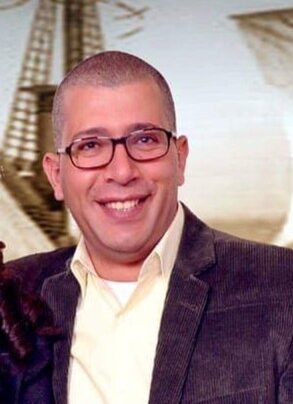PMX Perspectives
Insights from a PMX-er

“I find tremendous satisfaction in developing achievable mitigation strategies for complex projects and creating scheduling frameworks that help teams navigate challenges.”
Samir Rafla
Senior Scheduler
PMX Perspectives
From ancient Egyptian museums to modern transit systems, discover how Samir’s international project controls expertise drives success on billion-dollar infrastructure programs.
Q: What specific analytical and problem-solving qualities have contributed to your track record of meeting demanding schedule and budget requirements?
A: My success stems from three core qualities: systematic risk identification, proactive mitigation planning, and forensic-level attention to detail. I approach every project by first understanding the work breakdown structure and establishing robust baseline schedules that account for realistic goals and resource constraints.
My analytical background helps me catch schedule issues before they become real problems and figure out how to get back on track.The forensic claims experience has sharpened my ability to document decisions and analyze cause-and-effect relationships, which proves invaluable when defending schedule positions or developing recovery plans.
But honestly, the most important part is taking all that complex analysis and turning it into something the project team can actually use and act on.
Q: What role has your international project experience played in developing your leadership approach?
A: Working on projects in Tanzania and Egypt showed me that effective project controls go beyond just technical skills – you need to understand how different cultures work. On the Grand Egyptian Museum project, I was coordinating with ministry officials, international contractors, and local teams, and each group had completely different expectations and communication preferences.
That experience taught me you can’t use a one-size-fits-all approach when presenting schedule data or risk assessments. You have to tailor your message to what each audience cares about and how they prefer to receive information. While the fundamentals of CPM scheduling are the same everywhere, how you implement and communicate those principles needs to fit the local context.
This international perspective has actually made me much more effective on domestic projects too. Even here, I’m constantly working with stakeholder groups that have different priorities and decision-making styles. Having that global experience helps me read situations better and adjust my communication approach accordingly.
Q: What aspects of project controls and scheduling do you find most engaging in your current role?
A: I’m most energized by the challenge of developing mitigation strategies. There’s tremendous satisfaction in taking a $40 million hospital renovation or an $8.2 billion jail replacement program and creating scheduling frameworks that allow teams to navigate inevitable challenges successfully.
I particularly enjoy the forensic analysis work, which involves investigating delays, developing claims responses, and creating recovery schedules to get projects back on track.
The variety is incredible, one day I’m analyzing resource loading for transit infrastructure, the next I’m developing cash flow reports for corporate campus renovations. Each project presents unique scheduling puzzles that require creative solutions.
Q: What advice would you give to someone starting their career in project controls and scheduling?
A: Build a strong foundation in both the technical tools and the business context of construction. Master CPM scheduling software and earned value methodologies, but also understand how your analysis impacts project decision-making. Seek exposure to different project types. Each sector teaches you something new about scheduling challenges and stakeholder dynamics.
Don’t underestimate the importance of communication skills; your technical expertise is only valuable if you can convey insights clearly to project teams. Most importantly, develop a systematic approach to documentation and forensic analysis, these skills become invaluable as you advance to more complex projects and leadership roles.
Q: How has working across diverse sectors, from healthcare to aviation to criminal justice, enhanced your project controls expertise?
A: Each sector has taught me valuable lessons that I apply across all projects. Healthcare projects emphasized the critical importance of phasing to maintain operational continuity, skills that translate perfectly to corporate campus renovations where businesses must remain operational. Airport projects taught me about complex stakeholder coordination and regulatory compliance, which proved essential for criminal justice projects with their multiple agency oversight.
Transit projects highlighted the importance of interface scheduling when working in constrained urban environments. This diversity has made me a more versatile project controls professional who can quickly adapt methodologies to new sectors and project requirements.